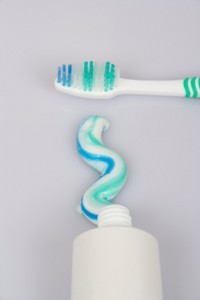Are Plastic Beads in Your Toothpaste Hurting Your Teeth?
Despite a lack of clinical evidence as to the impact of polyethylene plastic beads, toothpaste manufacturers are phasing them out.

While exfoliating beads have a functional purpose, the beads present in some toothpastes are purely decorative. In other words, they provide no real benefit, but may pose certain risks.
The first dental professional to publically discuss these risks was a dental hygienist from Texas, who posted an article on her personal blog detailing the potential impact of the polyethylene beads on oral health and urging her patients and others to switch to different toothpastes.
The dental hygienist reported that she and other hygienists through the US and Canada have been seeing these little blue bits of non-biodegradable plastic in the gum pockets of their patients. The gum pocket, or sulcus to use the technical term, is a very vulnerable area that needs to be protected from the bacteria that cause tooth decay and gum disease. It stands to reason that having foreign objects in the sulcus isn’t good for you.
The American Dental Association, which endorses various oral care products including toothpastes with its seal of approval, has declined to remove this seal from toothpastes with microbeads. After all, there is no clinical evidence to suggest that the FDA-approved plastic beads have caused users any harm.
The dental hygienist herself admits as much. In her blog, she was careful to point out that she was not actually taking the position that the beads were actively causing harm, but simply telling her patients that they had plastic lodged under their gums and letting them draw their own conclusions.
Crest, the manufacturer of some of the toothpastes in question, has announced that it has already begun phasing out the plastic beads in a process that will be complete by early 2016. The company cited “changing consumer preferences” for the decision rather than any health or safety concerns.
So what should you do if your toothpaste contains plastic microbeads? Ultimately it’s your judgment call. Just bear in mind that these beads serve no purpose other than to make your toothpaste look sparkly and attractive, and weigh that fact against the risk of getting plastic trapped beneath your gum line. If you’d like, come to California Dental Group for a dental cleaning and see what our hygienists find beneath your gum line.




